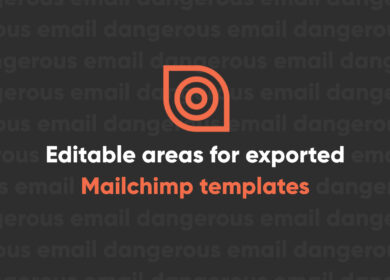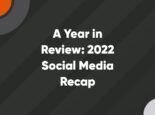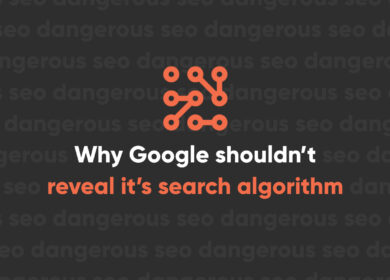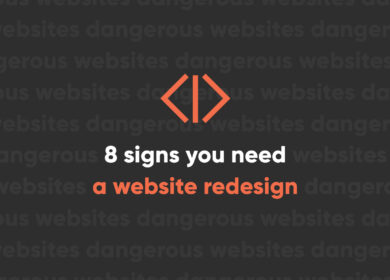
How to Write Content for People and Search Engines

When writing content for your website, it’s easy to focus on writing for your readers and neglecting to optimize your content for search. And while you should definitely prioritize your audience, utilizing SEO best practices is important for getting eyes on your content. Writing solely for one or the other will result in lower search performance, so striking a balance of writing content for people and search engines is the best way to make sure your content is relevant and also optimized for search.
There's a lot of overlap with writing content for people and search engines. Here are our top tips on creating high-quality content that appeals to your audience and gets ranked by search engines.
The Prioritization of Helpful Content
When you’re planning and writing content for your audience, one of your goals should be to provide valuable, helpful content. You’ll want your audience to view you as a reliable, educational source of information.
This year, Google rolled out the Helpful Content Update, which highlighted Google's prioritization of helpful content when ranking pages in SERPs.
So what does that mean for you?
Because Google is a tool that is trying to create the best possible search experience for its users, it wants to make sure the content it’s serving in search results is providing valuable information to users, answering users questions, and leaving users feeling satisfied that they got what they were looking for.
Basically, you and Google have the same goal. One of the biggest SEO best practices is creating quality content that appeals to the reader first. Google and other search engines serve humans, so putting humans first in your content will go far in getting your content indexed and ranked.
But of course, it's not that simple. There are other SEO best practices that you shouldn’t neglect.
SEO Best Practices
There are many on-page SEO factors that you should consider when creating a new piece of content. The good news is that all of these components not only influence your ranking but also make the user experience better – a win-win!
Here is a brief overview of some of the key areas you’ll want to optimize:
Keywords
Research and identify the keywords that you’re trying to rank for and use them throughout your piece of content. The keywords you choose should align with the problems you're trying to solve and the questions your audience is asking. For example, if you're writing a blog post about how software updates can help defend against viruses, keywords you'll use might include "software update benefits", "how often to update software", and "how to update software". It's likely your audience is searching for these terms, so including them in your content will increase its visibility.
Make sure you aren’t forcing keywords into the copy – if your content is too stuffed with keywords, search engines will notice that your content is too focused on ranking and the readability will suffer. Find ways to organically incorporate your keywords in headers and throughout the copy and try to use a keyword in the first 100 words of your copy.
Page Hierarchy
Your page needs structure. Having big blocks of text severely impacts readability and user experience, so you’ll want to make sure you’re using headers and sub headers to break up sections of copy along with bulleted lists, call-out quotes and any other elements that help break up the page and give your content structure. Be concise with your writing, too. Keep paragraphs short and to the point.
To use headers on your webpages, make sure you're formatting copy into H1 and H2 headers. H1 headers should be the big ideas while H2 headers should be smaller points within those big ideas. The style of the headings should reflect their hierarchy on the page, so an H1 font should appear larger than an H2. You can break copy down even further by using H3s and H4s if it makes sense for your page's structure.
Try to use keywords in your headers when possible. As stated above, if you use too many keywords, search engines will think you're writing more for search and less for the reader, so be selective about which keywords you're using where. But including keywords in headers can be a great way to provide clarity to readers while giving your content potential to rank higher.
Images
Pictures and videos are a great way to make your content more interesting and to break up text. Supplementing text with images keeps readers engaged. Just remember to compress images so that they don’t slow down your page speed.
Make sure to include alternative tags for all images. Alt tags provide a description of the image or video that is important for a number of reasons. For one thing, if the image doesn't show up on the page, a description will still be there to give viewers an idea of what the image was about. Alt tags are also important because they give search engines a better understanding of what your content is about. Lastly, alt tags are necessary for accessibility purposes. Screen readers read alt tags, giving anyone with a visual impairment context for what the image is depicting.
Title Tags
Title tags are the titles of your webpages that appear as links in search results. You’ll want your title to be short enough to not get cut off in the results but long enough to give your readers an understanding of what the content is about. Stick to 50-60 characters and try to squeeze in a keyword.
By writing title tags, you're giving search engines what they need to describe your content to readers. But even though you've written a great title tag, it's important to note that there's no guarantee Google will use that specified tag.
Meta Descriptions
Meta descriptions are the descriptions of your page that appears below the title tag in search results. These can be between 150-160 characters and should tell readers (and the search engine) what your content is about while including keywords. They should also be catchy or interesting, making your readers want to click your content.
Page Links
Including internal links on your pages is important for making it as easy as possible to navigate your website. You can link to related content, service or product pages, blog posts, case studies, etc. You’ll want to structure your website by pillar pages and then link related content to those pages. For instance, your pillar page might be your services page and supporting pages would be a blog post and a case study related to the service.
Throughout this process, make sure you're linking any relevant preexisting pages to the new page. Any new pages that don't have internal links directing traffic to them won't perform well in search, so be sure to consider linking opportunities when posting new content.
There are more SEO aspects that you can dive into to support your quality writing, but all of the above are helpful starting points that can contribute to higher ranking and give your users an optimal website experience.
Bringing in external SEO assistance is always a great option, too. If you're looking for someone with expertise in this area or want to dive deeper with a holistic, custom-built SEO strategy for your website, consider hiring a digital marketing agency like Perrill. We'll evaluate your specific needs and partner with you to create a strategy that fits your goals.
SEO is an ongoing process, so having a dedicated team who is evaluating your website for search engine optimization and recommending improvements over time can really help you boost your rankings and stay ahead of competition.
Other Quality Content Tips
The most important part of writing content for your audience is understanding your audience. Content should be written with a primary audience in mind – think a specific, targeted group - to make it as relevant as possible. From there, make sure your content is informative, useful and valuable to your reader. It should be well-written, easy to read and understand, and should answer the question the reader asked in their search query.
Another tip is to make sure you’re measuring your content as you go so that you can get the best understanding of how your audience is responding to your content and what is resonating well. We recommend closely tracking your website in Google Analytics – and if you haven’t updated your account to Google Analytics 4, you should add that to your list of New Year’s resolutions. Universal Analytics sunsets in July of 2023, so you’ll want to make sure you’re collecting as much historical data about your content as possible before then.
Now more than ever, creating quality content is the key to standing out from the crowd. The digital landscape is overwhelmed with content, but writing content for people and search engines will help you reach your audience.
If you're ready to talk content strategy and increasing web traffic, reach out! We're happy to partner with you to build out a unified digital strategy to grow your online presence and better connect you with your audience.





